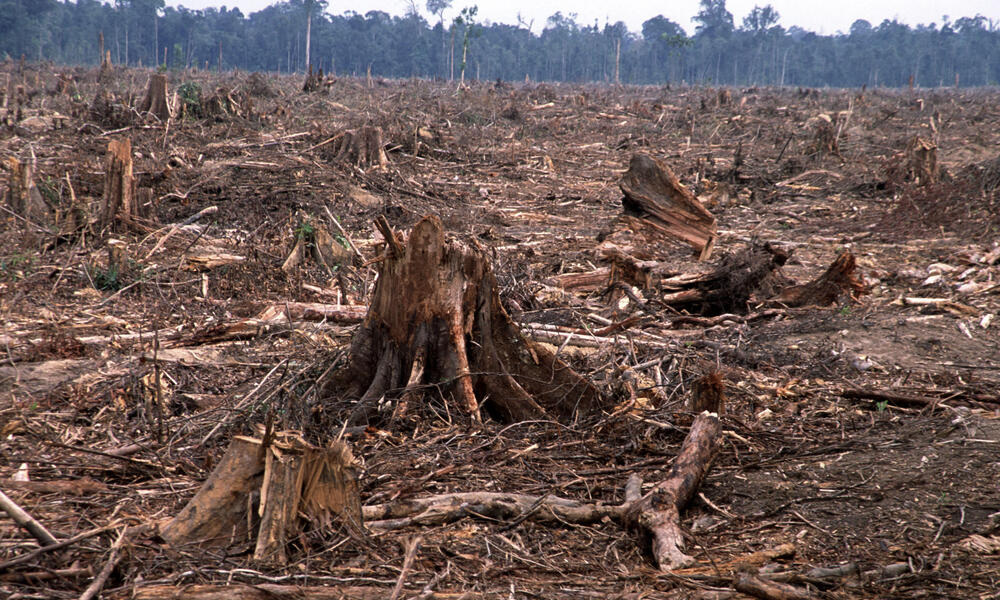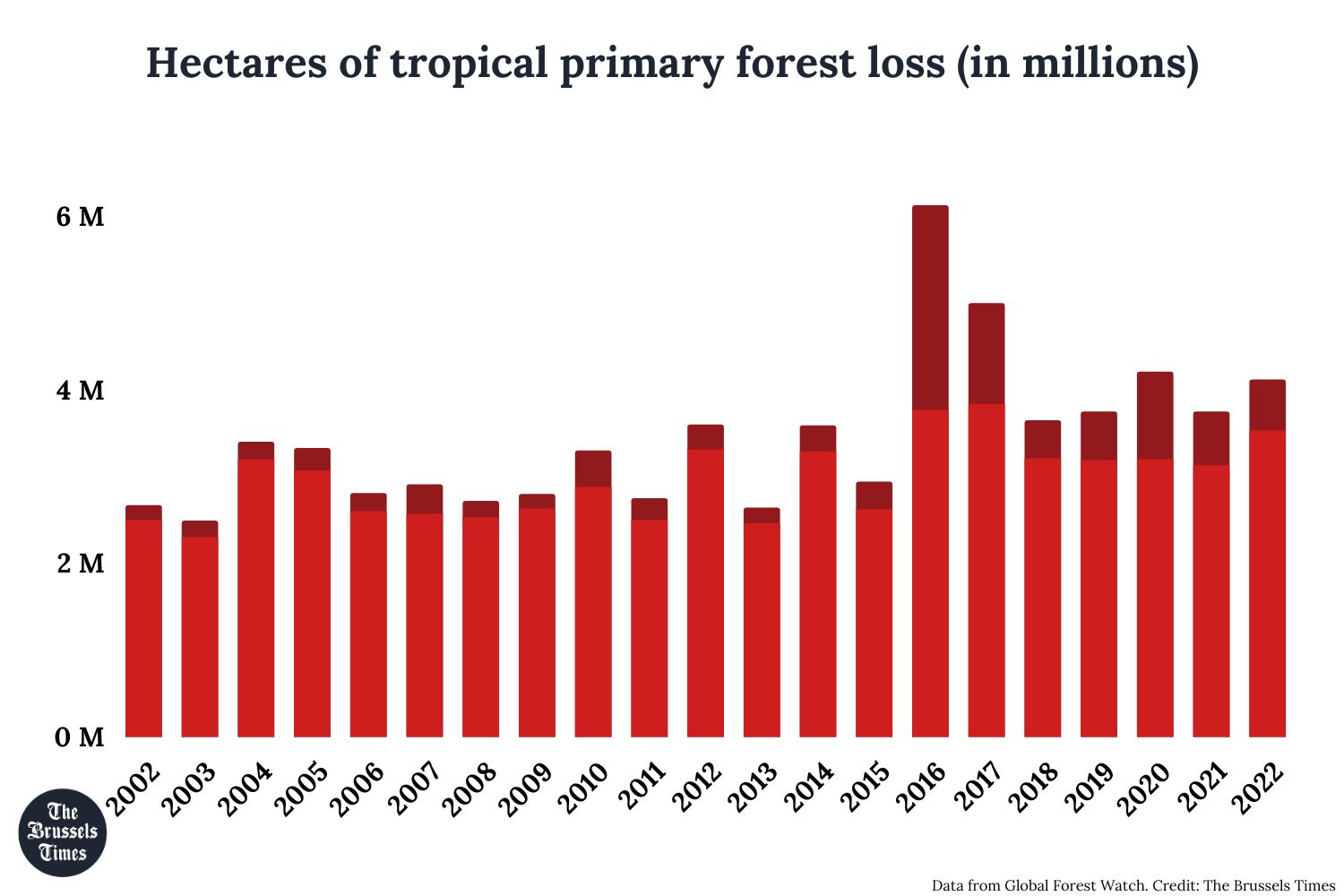Despite several years of international commitments to end deforestation, tropical primary forest loss worsened by 10% in 2022.
The regions surrounding the Equator, referred to as the tropics, lost 10% more primary rainforest in 2022 than in 2021, an analysis of satellite data published on the World Resources Institute's Global Forest Watch platform showed.
"Tropical primary forest loss in 2022 totalled 4.1 million hectares, the equivalent of losing 11 football fields of forest per minute," Global Forest Watch noted in a statement. These forests have largely been destroyed for agriculture and livestock farming.
Primary tropical forests are crucial for the planet's biodiversity and carbon storage. Meanwhile, forest loss in 2022 produced 2.7 gigatonnes (Gt) of carbon dioxide emissions – equivalent to India's annual fossil fuel emissions.
Brazil hit hardest
Brazil suffered the most deforestation globally, accounting for 43% of global losses, ahead of the Democratic Republic of Congo (13%). At the national level, primary forest declined most rapidly in Ghana and Bolivia.
In Brazil, the vast majority of primary forest loss happened in the Amazon. Non-fire-related losses, which are most often due to clear-cut deforestation in the Brazilian Amazon, reached the highest level since 2005.
The organisation stressed that forest loss in Brazil decreased dramatically in the early 2000s under President Luiz Inácio Lula da Silva (Lula), and increased under the Bolsonaro administration. "The re-election of President Lula may reverse that trend," it noted, as his administration promised to end deforestation in the Amazon and other biomes in Brazil by 2030.
Total global tree cover loss, which includes primary, secondary and planted forests, declined by 10% in 2022 – a direct result of a decrease in fire-related losses. "However, the rate of fire-related loss worldwide has generally increased since 2000, likely driven by climate change and human activities, and 2021 saw a major increase in fire-related loss in the boreal region."
Related News
- Brazilian president's new plan to tackle deforestation in Amazon
- Smoke from fires in Canada will reach Belgium
Actions, not words
Harbouring the most biodiversity of any ecosystem on Earth, forests are pivotal for human well-being and many rely on forest resources for their livelihoods. Reducing deforestation is also one of the most cost-effective land-based measures to mitigate climate change.
Global Forest Watch welcomed the fact that, in recent years, new international ambitions have recognised the urgent need to end deforestation, but said that "the lack of progress in slowing forest loss in the tropics underscores the need to move beyond political commitments to action."
The group added that, currently, humanity is not on track to meet major forest-related commitments. "While some countries have shown promising results to reduce forest loss, such as Indonesia and Malaysia, others have seen continued activities and policies that are causing acceleration of deforestation in critical areas."


